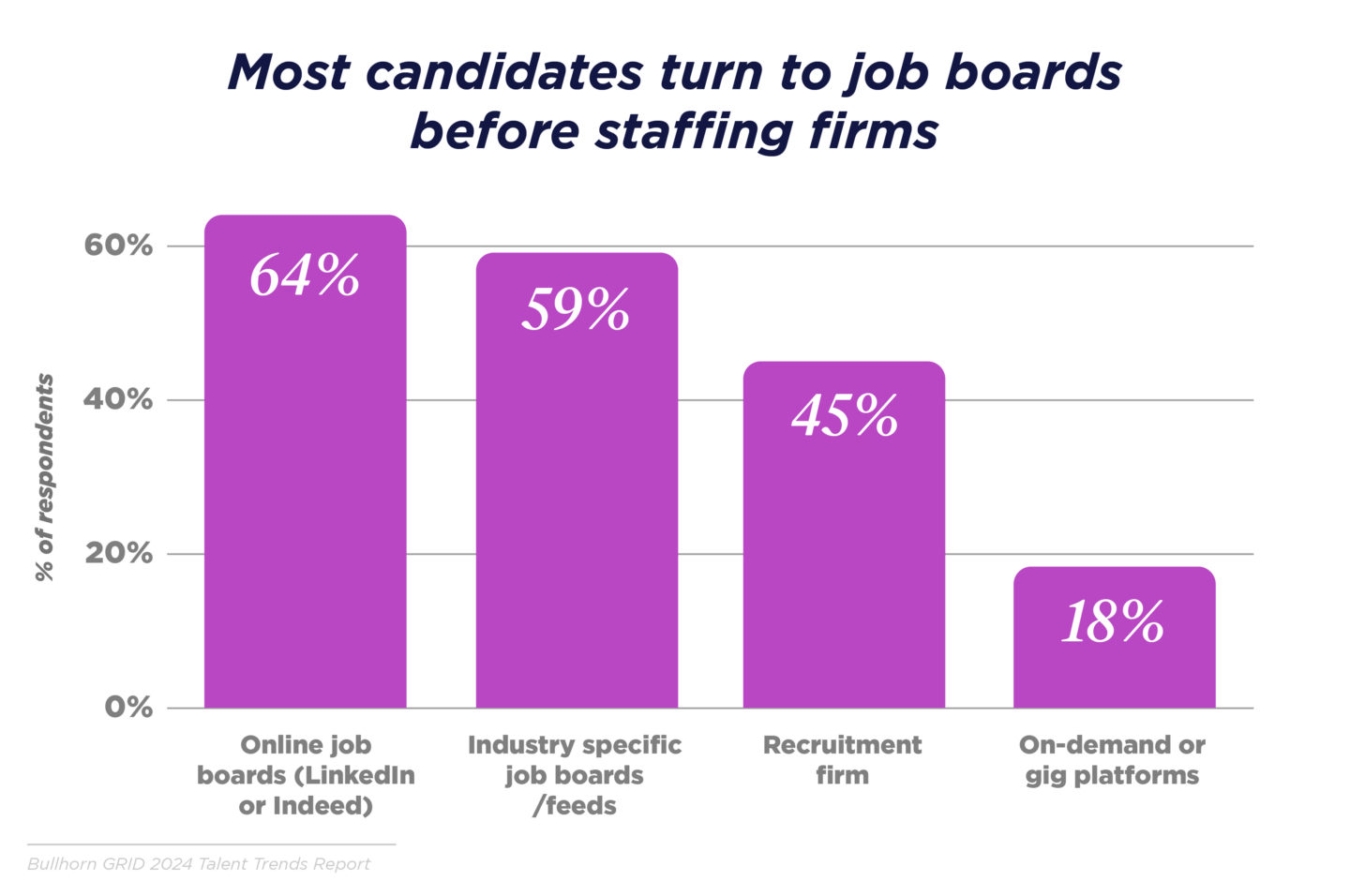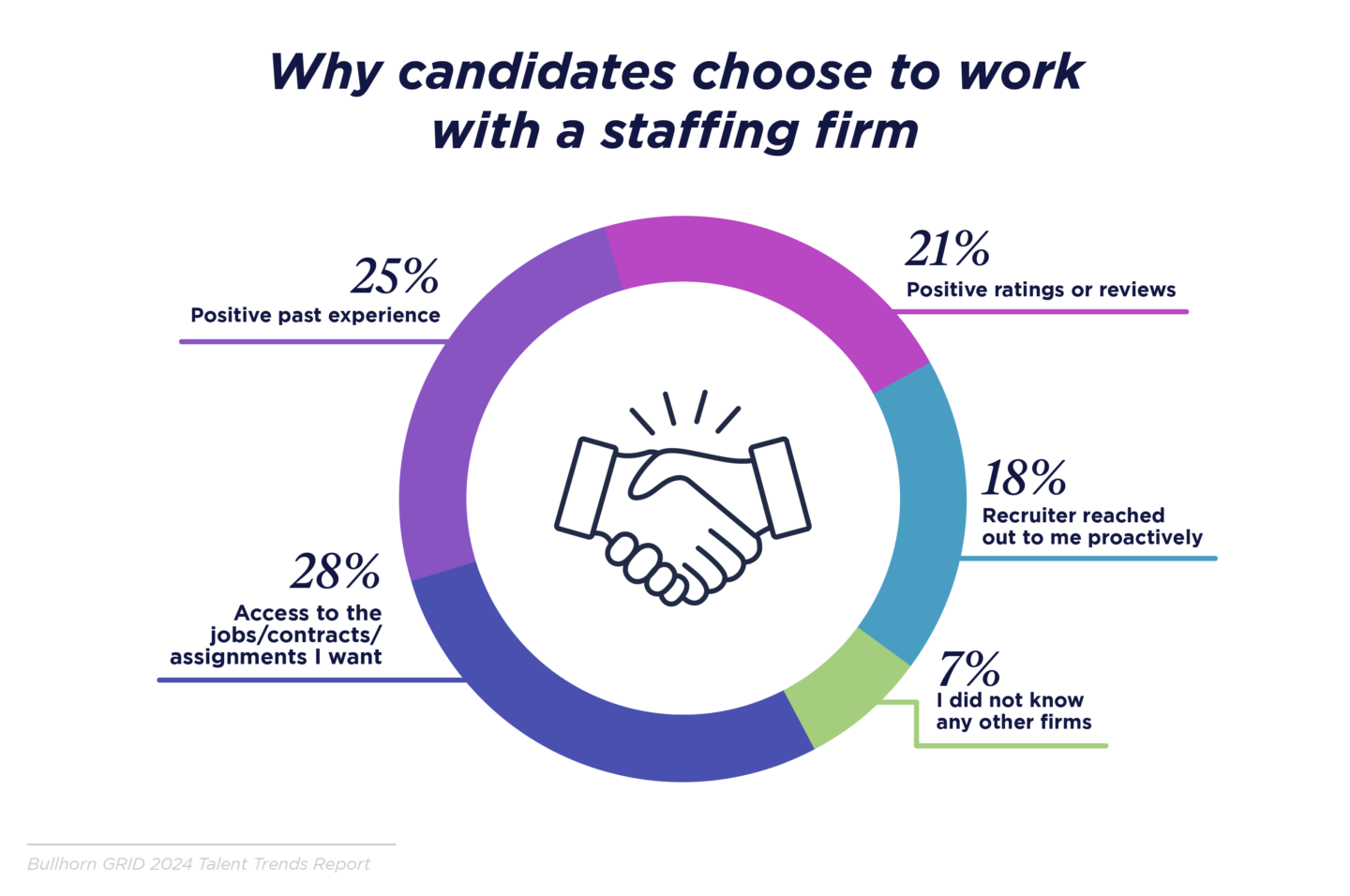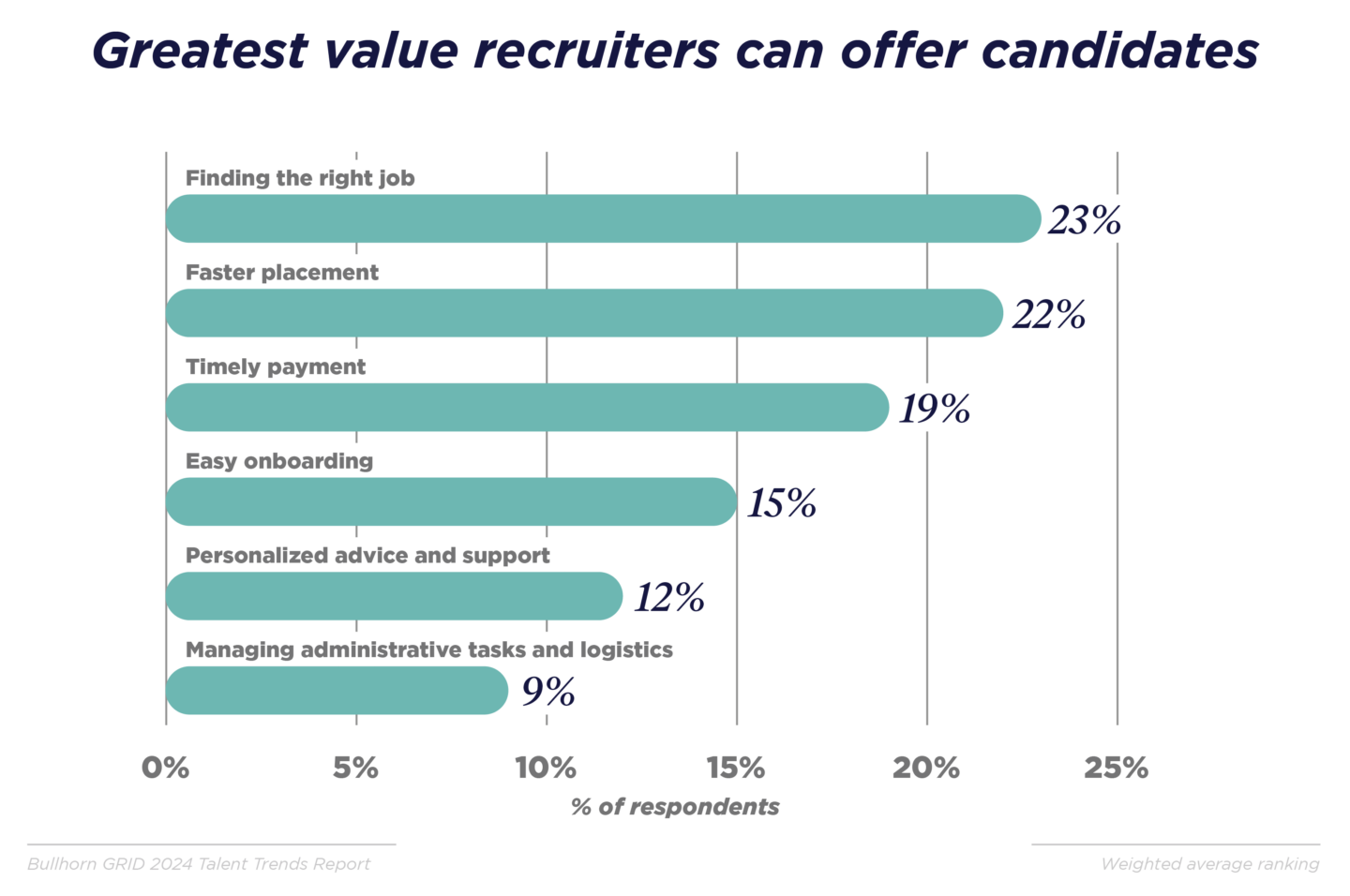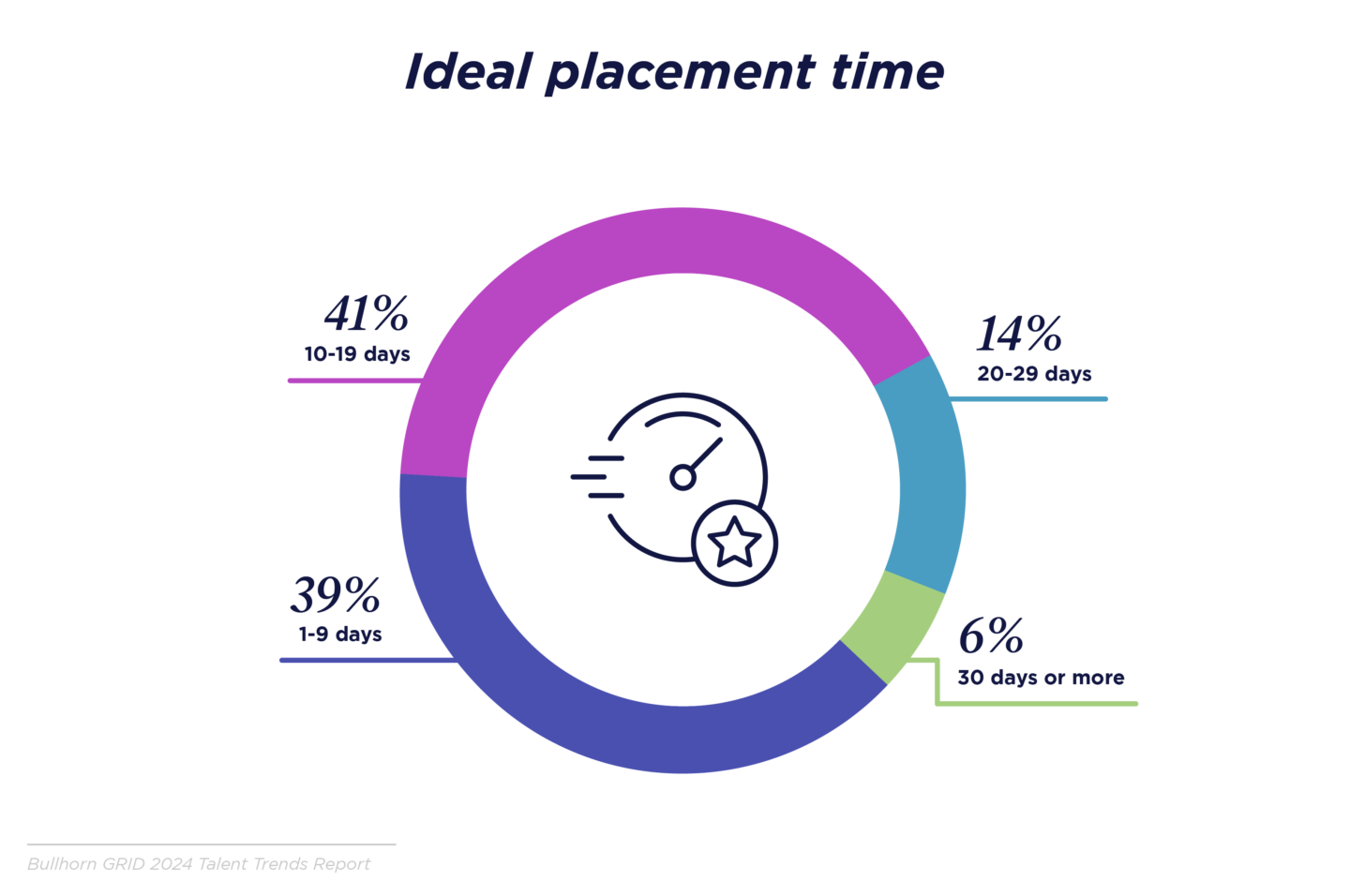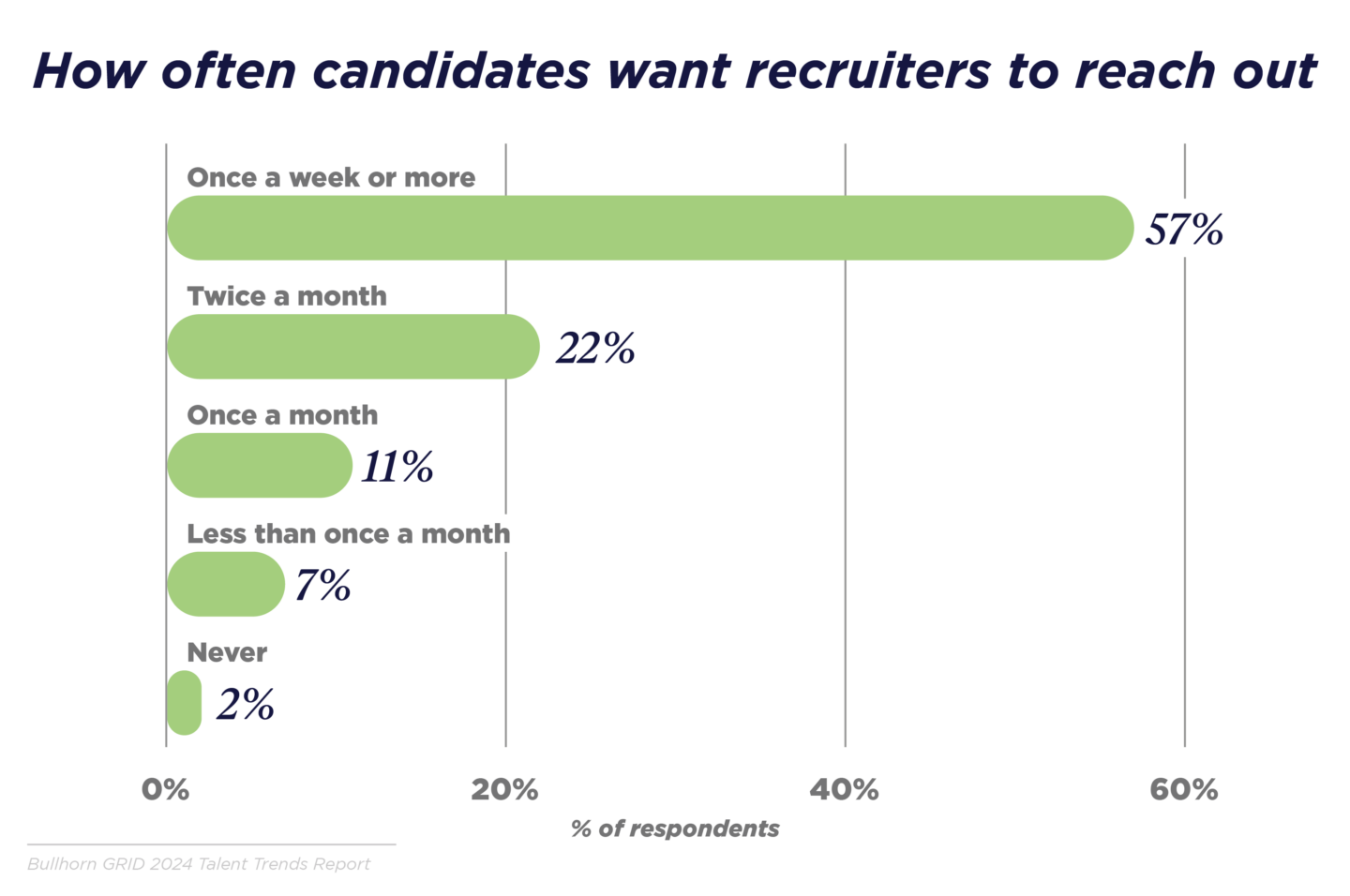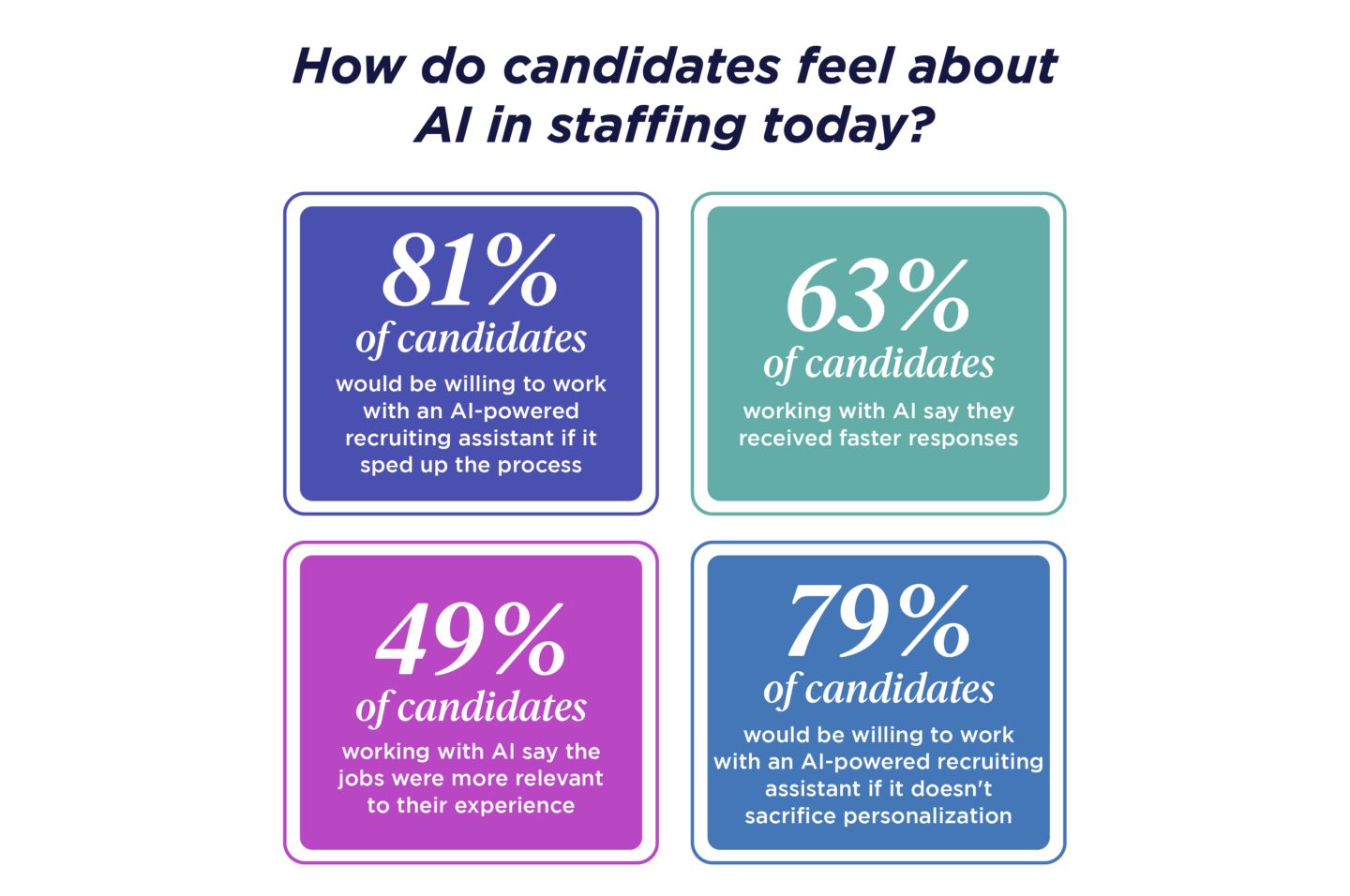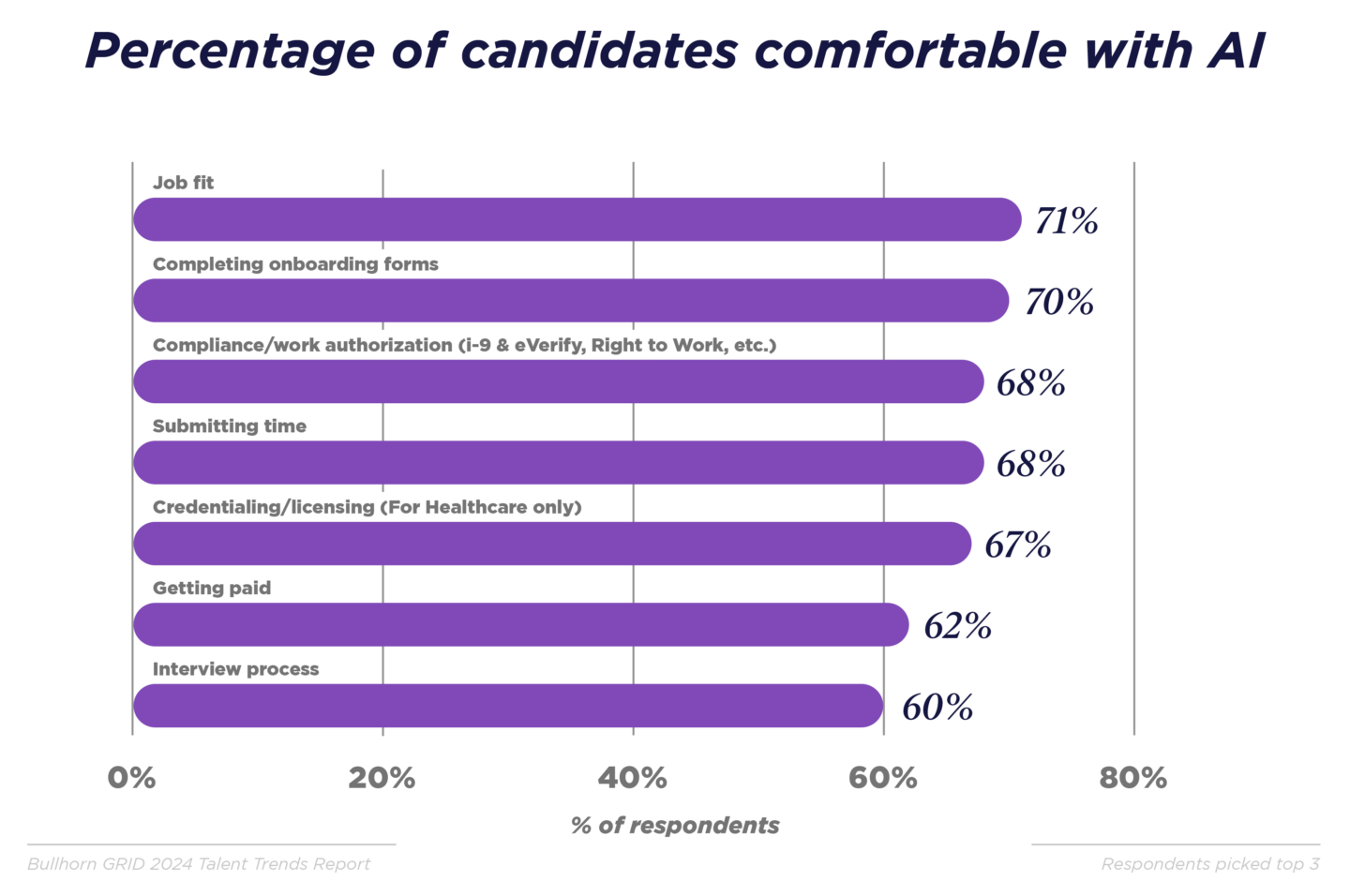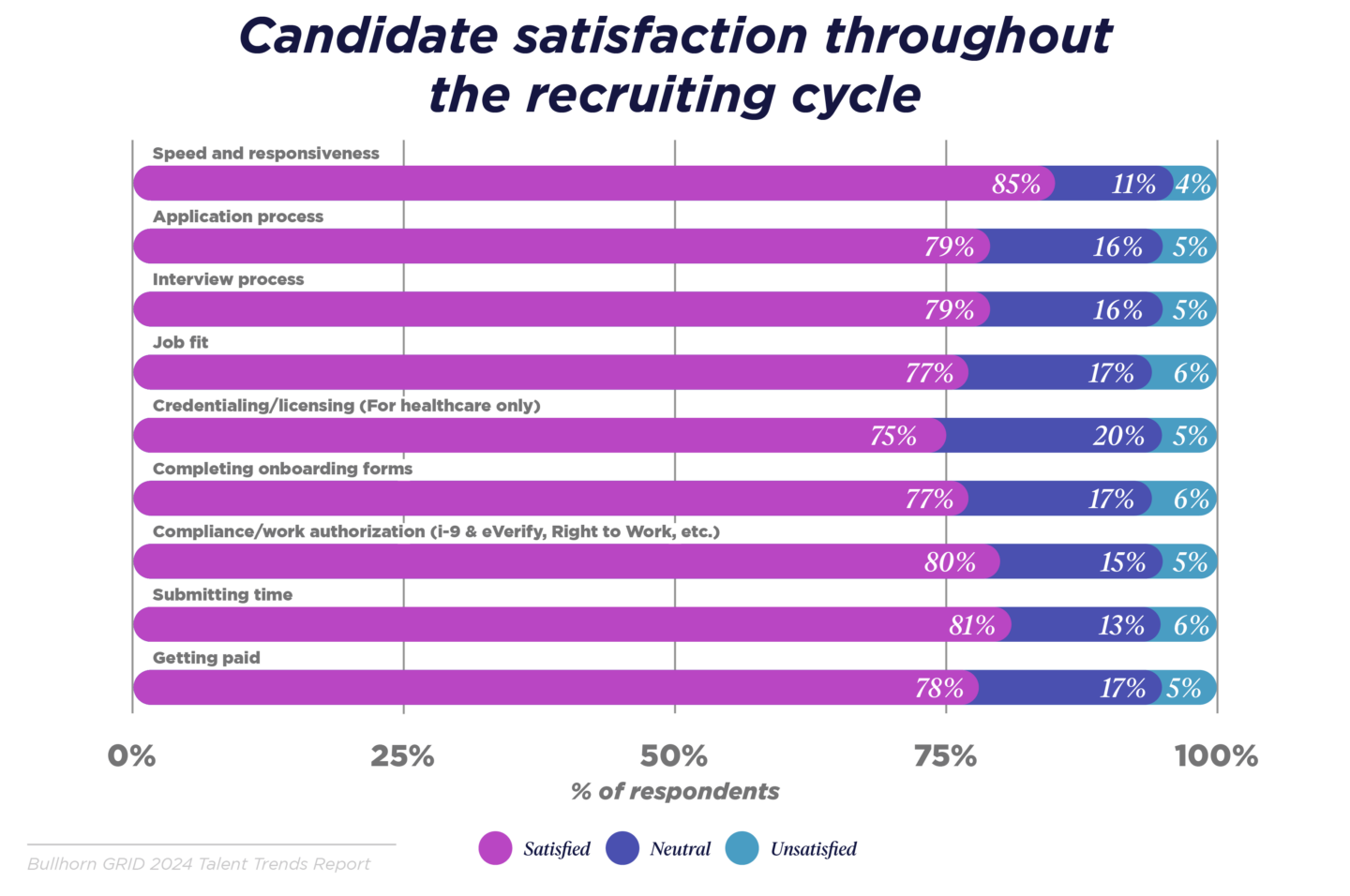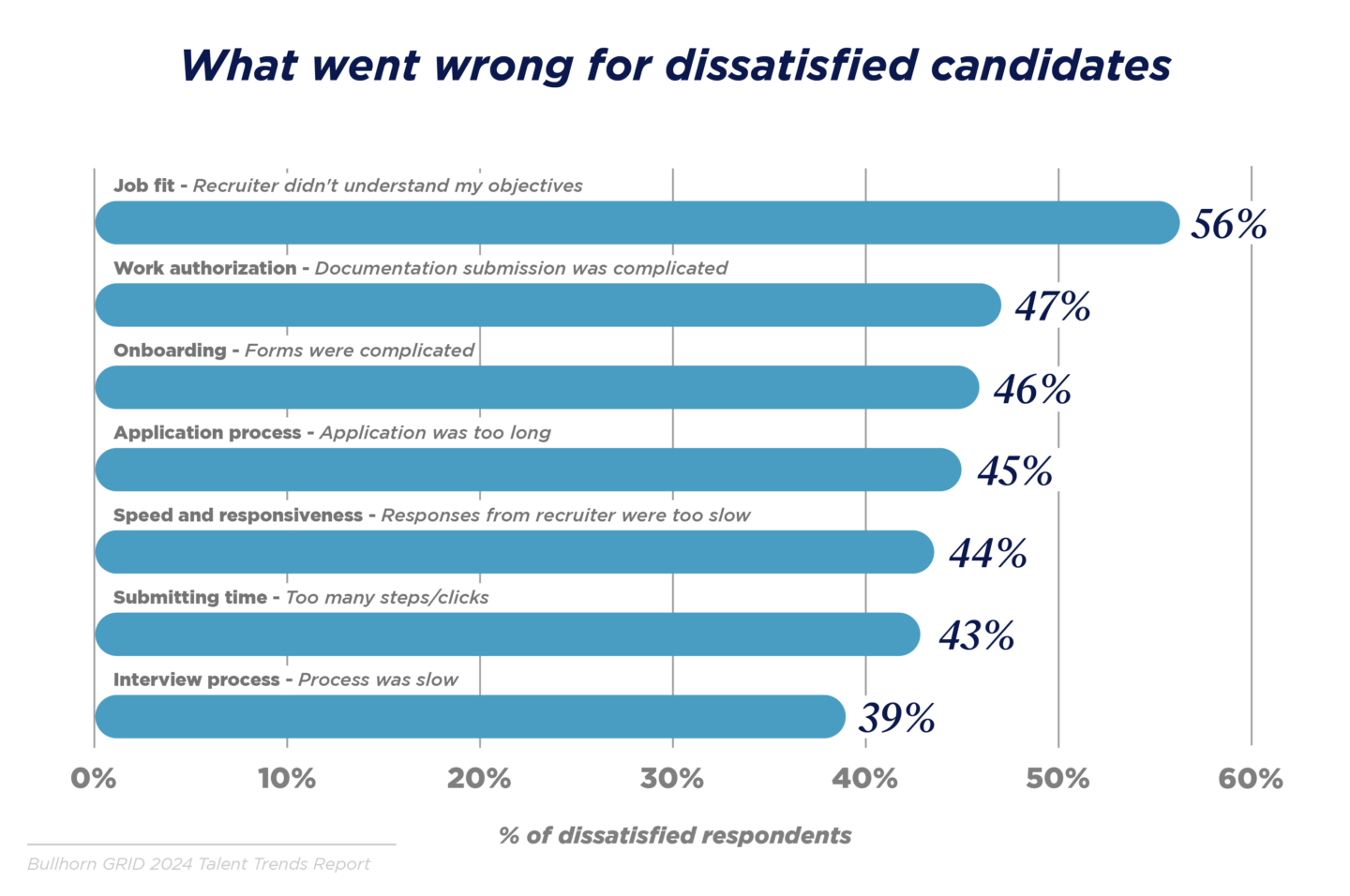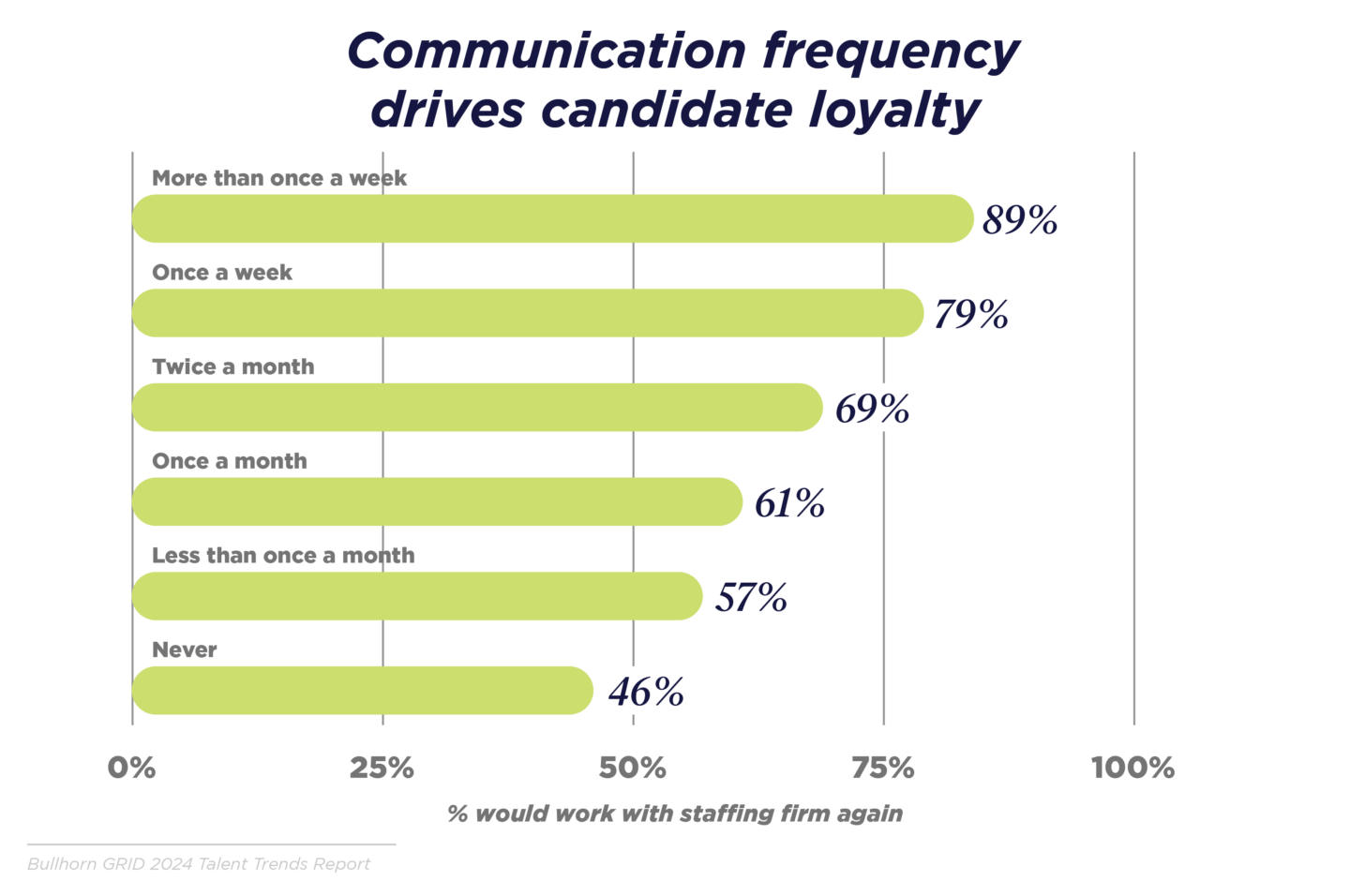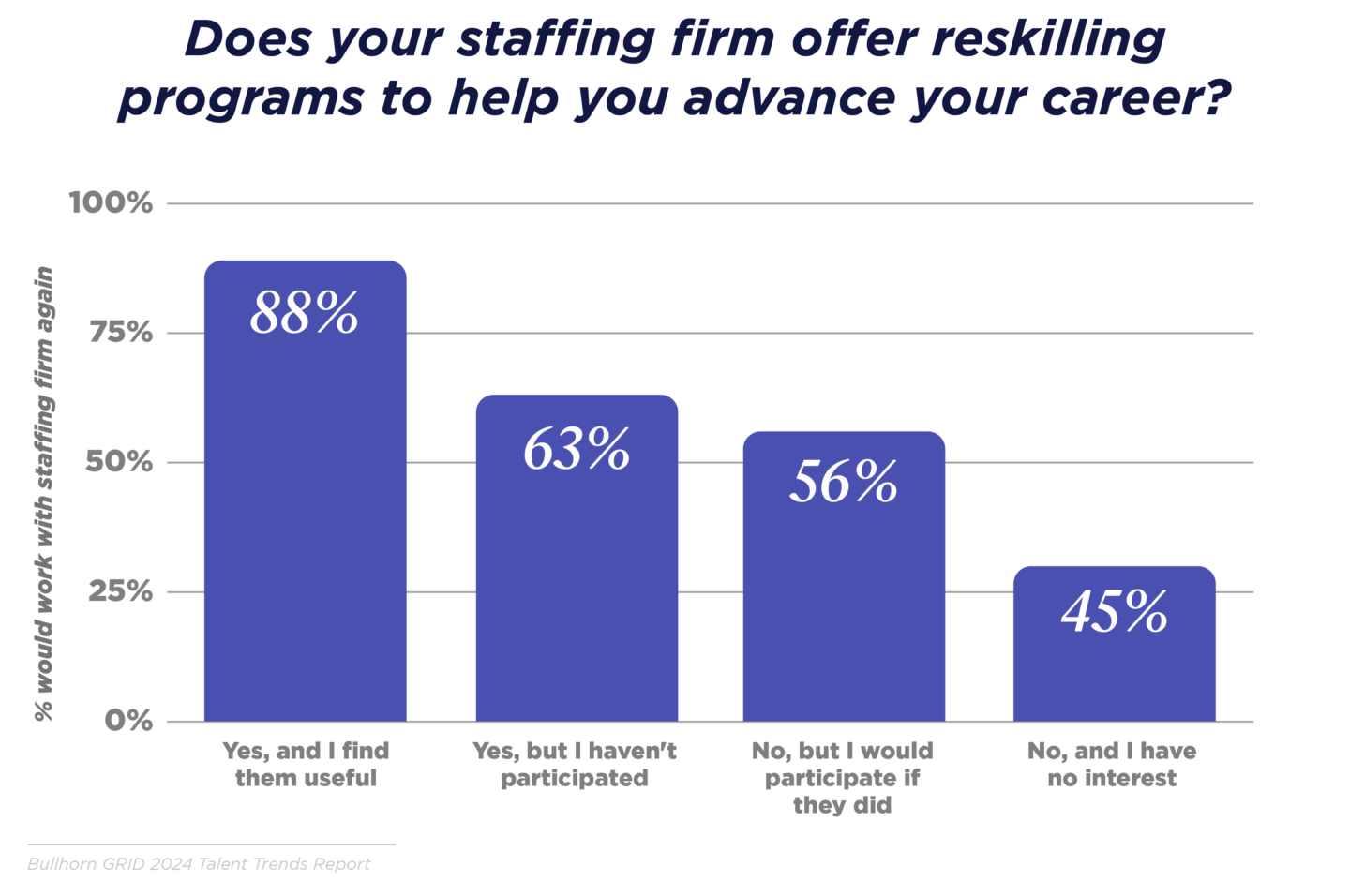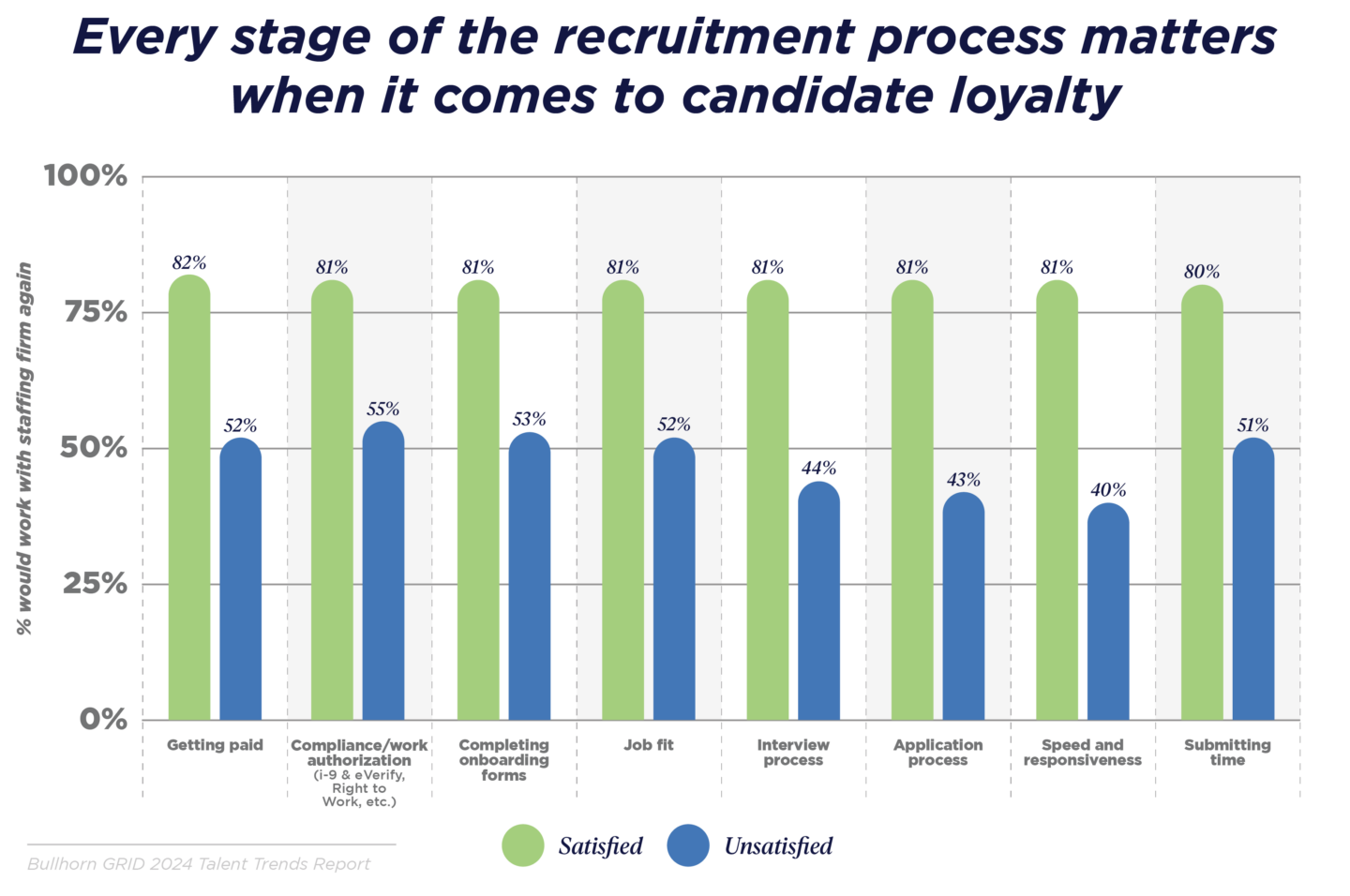Download report highlights
Job boards are beating agencies for first touch
Commercial and professional candidates are the most likely to use staffing firms, with 49% making it their go-to resource. That falls to 38% for healthcare candidates. Most candidates are starting with sources like LinkedIn or industry-specific job boards. In order to compete, firms will need to provide the easy, 24-7 experience of job boards — combined with the expertise and human touch of a recruiter relationship.
Recruiter sourcing and screening is a comparative advantage over job boards
When asked to rank the greatest value offered by recruiters, it was clear what candidates want most is the right jobs served up to them quickly. And when asked a related question about what they expect staffing firms to handle for them, candidates overwhelmingly (nearly 70%) say finding and recommending appropriate job postings. Nailing sourcing and screening remains the comparative advantage that staffing firms have over job boards, and specialized expertise is what helps firms differentiate from their competition.
79% of candidates would let AI handle communication if it didn’t sacrifice personalization
Most candidates report recruiters are communicating with them less than they would like. 65% want to hear from recruiters once a week or more, which only happens 57% of the time. This level of communication — especially tailored communication — is only possible with the right technology. The good news is 79% of candidates said they would be comfortable with AI handling communication and other recruitment tasks if it didn’t mean sacrificing personalization.
Candidates are ready for AI
Overall, candidates across age groups and industries are comfortable working with AI-powered tools at pretty much all stages of the recruitment process — as long as they deliver results. That means better job matching, faster placements, and timely and clear communication — and all still tailored to the individual candidate. An AI-powered sea change is coming in the staffing industry, and firms have a crucial, time-limited opportunity to demonstrate the value to candidates.
Candidates are eager for AI to improve job fit and make administrative tasks easier
Candidates are most comfortable with AI handling job fit — a savvy perspective given how well AI can be trained on a vast quantity of past recruitment data to predict the best job matches. They are also very comfortable with AI handling cumbersome administrative tasks like onboarding paperwork, time tracking, and compliance forms. These results suggest that over 60% of candidates are comfortable with AI handling the entire recruitment process.
Lack of speed and communication are where the recruiting process falls short for candidates
When asked about their satisfaction with various stages of the recruitment process, most candidates are satisfied, but there remains room for improvement. And those who are not satisfied, it was largely because the process was too slow, the job fit wasn’t right, or the administrative tasks were too cumbersome.
When things go wrong, it’s because they take too long and are too complicated
Many of the breakdowns in candidate satisfaction relate to lack of speed, overly complicated workflows, and poor job fit, and almost always come in the pre-placement phase. And they all speak to a need to optimize recruitment processes. A plurality of dissatisfied candidates felt recruiters were too slow (44%), the application process was too long (45%), and forms were too complicated (46%). Particularly concerning is that 56% of dissatisfied candidates thought their recruiters didn’t understand what they were looking for in a job. Really leveling up sourcing and screening, potentially with AI, can address all of these pain points.
Every stage of the recruitment cycle counts when it comes to candidate loyalty
Even as the talent shortage may be easing, candidate expectations have evolved over the last few years. Highly-skilled candidates remain in demand and they are choosing to work with firms that communicate frequently and clearly, offer them the resources they need to enhance their careers, and make every stage of the recruitment process as easy as possible.
Helping candidates build their career skills breeds loyalty
With marketable skills changing ever more quickly, it is hard for candidates to keep up. This is true across all industries. Offering this kind of extra support and personalized opportunities correlates strongly with increased candidate loyalty. That makes this strategy a double-win: firms keep more candidates loyal while building the workforce their clients need for the future.
Conclusion
Overall, candidates are pretty clear about what they expect from recruiters and their firms: timely placement in the right job, clear communication, and technology that makes the process run smoothly. AI can enhance candidate matching, streamline screening, and make administrative tasks simpler — freeing recruiters up to focus on the human aspects of recruiting like reskilling and candidate/client engagement. And candidates are ready for AI to take a bigger role in recruitment, as long as the technology delivers. Learn more about what recruitment will look like with AI infused everywhere.

